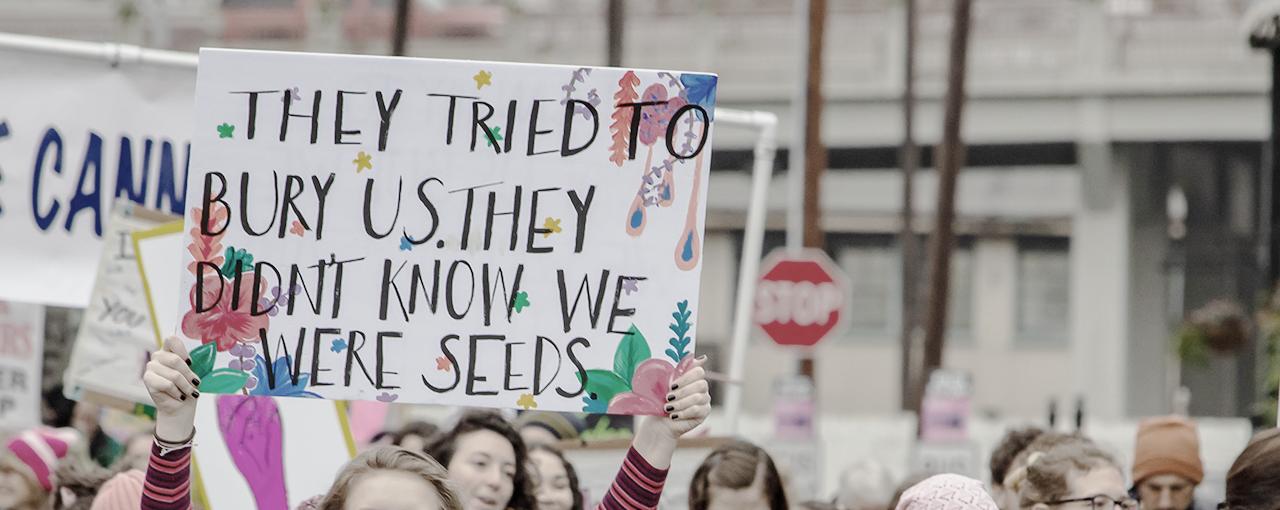
International Women’s Day - Celebrating Progress, While Still Pressing for Change
This week we’re celebrating International Women’s Day—a day to honour the women in our lives, recognize the accomplishments made by women worldwide and reflect on the work that still needs to be done so that every woman and girl can reach their full potential.
While we recognize that we still have a long way to go to achieve gender equality, it’s important to celebrate the progress we have made so far. Here’s a quick roundup of some of the advancements women around the globe achieved in the past year.
Iceland becomes the first country to enforce paying men and women equally.
In January 2018, Iceland became the first country in the world to mandate that women receive the same pay as their male counterparts for doing the same work. In fact, for the last 10 years, Iceland has been rated the world’s most gender-equal country by the World Economic Forum. It was the first country to directly elect a female president, nearly half its MPs and company directors are women and strong policies and incentives towards child care and parental leave help ensure almost four in five women have jobs.
In Canada, we are still struggling to close the gender pay gap. Considering the annual earnings of full-time, full-year workers, women earn $0.74 for every dollar earned by men ($0.88 considering hourly wages of full-time workers). In October 2018, the federal government introduced the Pay Equity Act for establishing pay equity in federally regulated sectors, but it will take at least three years before the new policy comes into effect.
Saudi women are now able to drive legally.
In June 2018, Saudi Arabia lifted a ban that prohibited women to obtain a driver’s license. Saudi Arabia was the only country in the world where women weren't allowed to drive, a policy that had been in place since 1957.
While Saudi women can now drive, they still have to follow guardianship rules that require them to get the permission of a male relative for tasks such as travel, as well as marriage and some health procedures.
France has declared cat-calling illegal.
In August 2018, French officials voted to pass a bill that outlaws cat-calling and wolf-whistling, and enforces on-the-spot fines of up to €750 (about C$1,125) for the act. Catcalling isn’t flirting, it’s sexual harassment and should be treated as such. We hope this new law will inspire Canada and other countries to take action against street harassment.
Women and women’s rights activists made history in the Nobel Prizes.
In October 2018, Canadian Professor Donna Strickland became the first woman in 55 years to win the Nobel Prize for Physics. Dr. Strickland is a role model for young researchers and has shown the world that women have an important role to play in science.
The Nobel Peace Prize 2018 was awarded jointly to Dr. Denis Mukwege, a Congolese surgeon who treats rape victims, and Nadia Murad, a human rights activist who survived enslavement at the hands of ISIS and the first Iraqi woman to receive the award. Both Dr. Mukwege and Nadia are also advocates for survivors of sexual assault.
More women elected to City Council in Metro Vancouver.
On a local level, the municipal elections held in October 2018 made history with women accounting for a majority of the members of the City Council in Vancouver, Surrey and Richmond.
Although the representation of women in Canadian politics has improved, progress has been slow. Across Canada, women—especially minorities and Indigenous women—continue to be underrepresented in the halls of power. Only 11 women have served as premier, and Kim Campbell is still the only woman in Canada’s history to have been prime minister. With women making up 51% of the population, politics is still a boys’ club in Canada and many other countries.
Women and minorities broke records in the U.S. midterm elections.
In November 2018, a record number of female candidates—many of whom were women of colour and other minorities—were elected to the House of Representatives. These results are particularly important in a country whose president openly brags about being able to sexually harass women.
Can you think of any other accomplishments women have made in the last year? What are some changes you want to see in the future? Leave your comments below!
Follow us on Facebook, Twitter and LinkedIn and join us as we honour and celebrate local women who are making a difference in our community.

